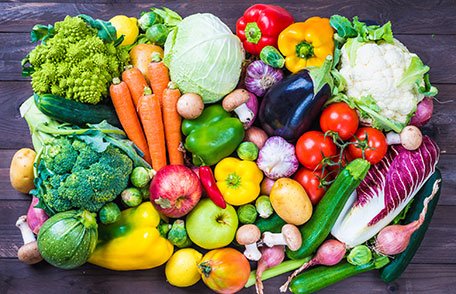Eating a diet with plenty of fruits and vegetables provides important health benefits when you select and prepare them safely.
Fruits and veggies add nutrients to your diet that help protect you from heart disease, stroke, and some cancers. And choosing produce including vegetables, fruits, and nuts—instead of high-calorie foods also helps you manage your weight.
But sometimes raw fruits and vegetables may contain harmful germs, such as Salmonella, E. coli, and Listeria, which can make you and your family sick with food poisoning. In the United States, nearly half of foodborne illnesses are caused by germs on contaminated fresh produce.
Safer choices for fresh produce are washed fresh vegetables, including salads, and cooked vegetables. Unwashed fresh vegetables, including lettuce and salads, are more likely to make people sick with a foodborne illness.
Bean sprouts
Cook sprouts thoroughly to reduce the risk of illness.Sprouts are a particular concern because the warm, humid conditions needed to grow sprouts also are ideal for germs to multiply. Therefore, eating raw or lightly cooked sprouts may lead to food poisoning. It’s especially important to avoid raw sprouts if you are in a group more likely to get a foodborne illness: pregnant women, young children, older adults, and people with weakened immune systems.

Sprouts: What You Should Know
Learn about Salmonella and E. coli outbreaks linked to sprouts in 2016.
Enjoy uncooked fruits and vegetables while taking steps to avoid food poisoning.
Check fruits and vegetables
Hi! I am a robot. I just upvoted you! I found similar content that readers might be interested in:
https://www.cdc.gov/features/foodsafetyquiz/index.html
Downvoting a post can decrease pending rewards and make it less visible. Common reasons:
Submit